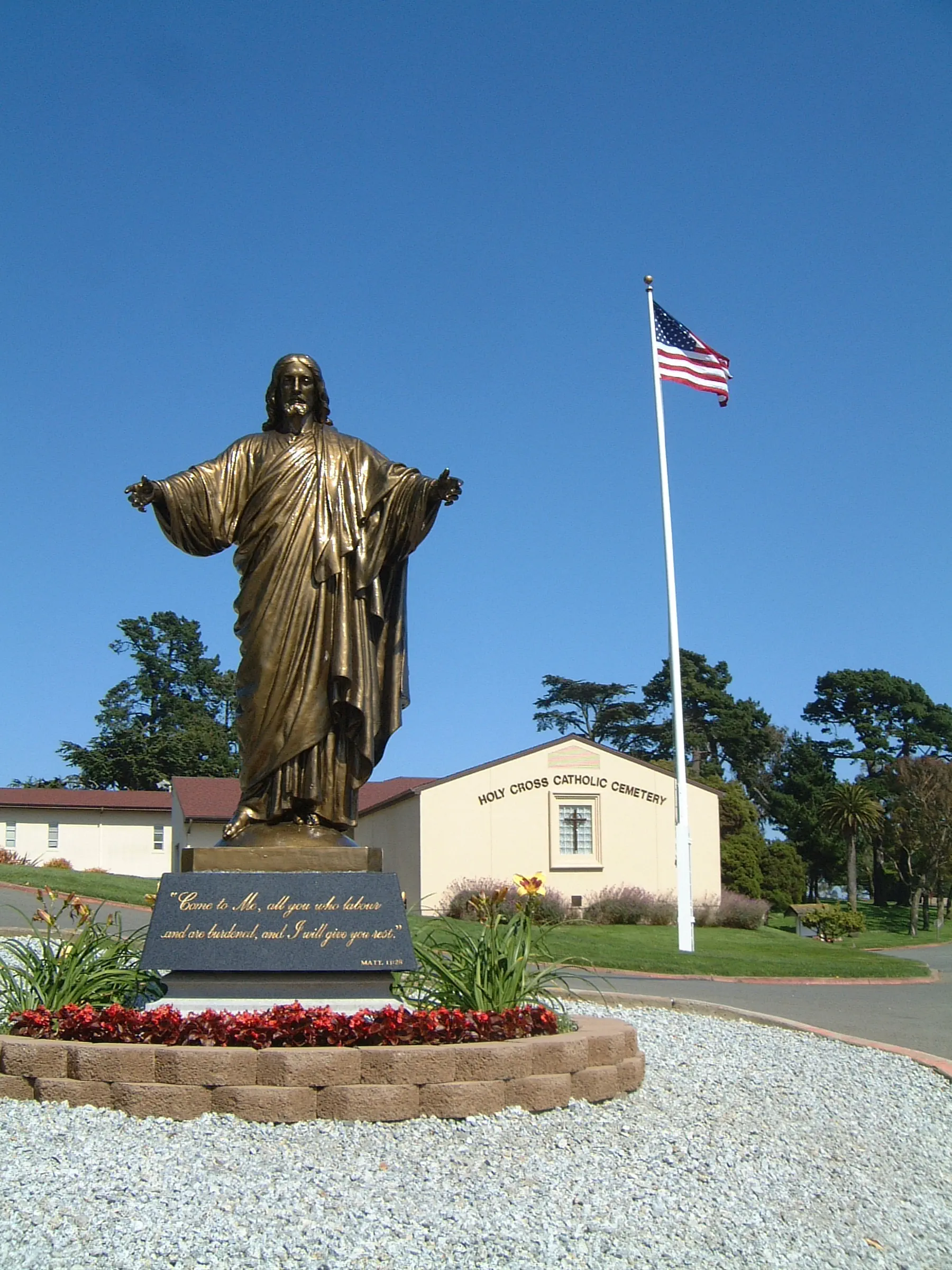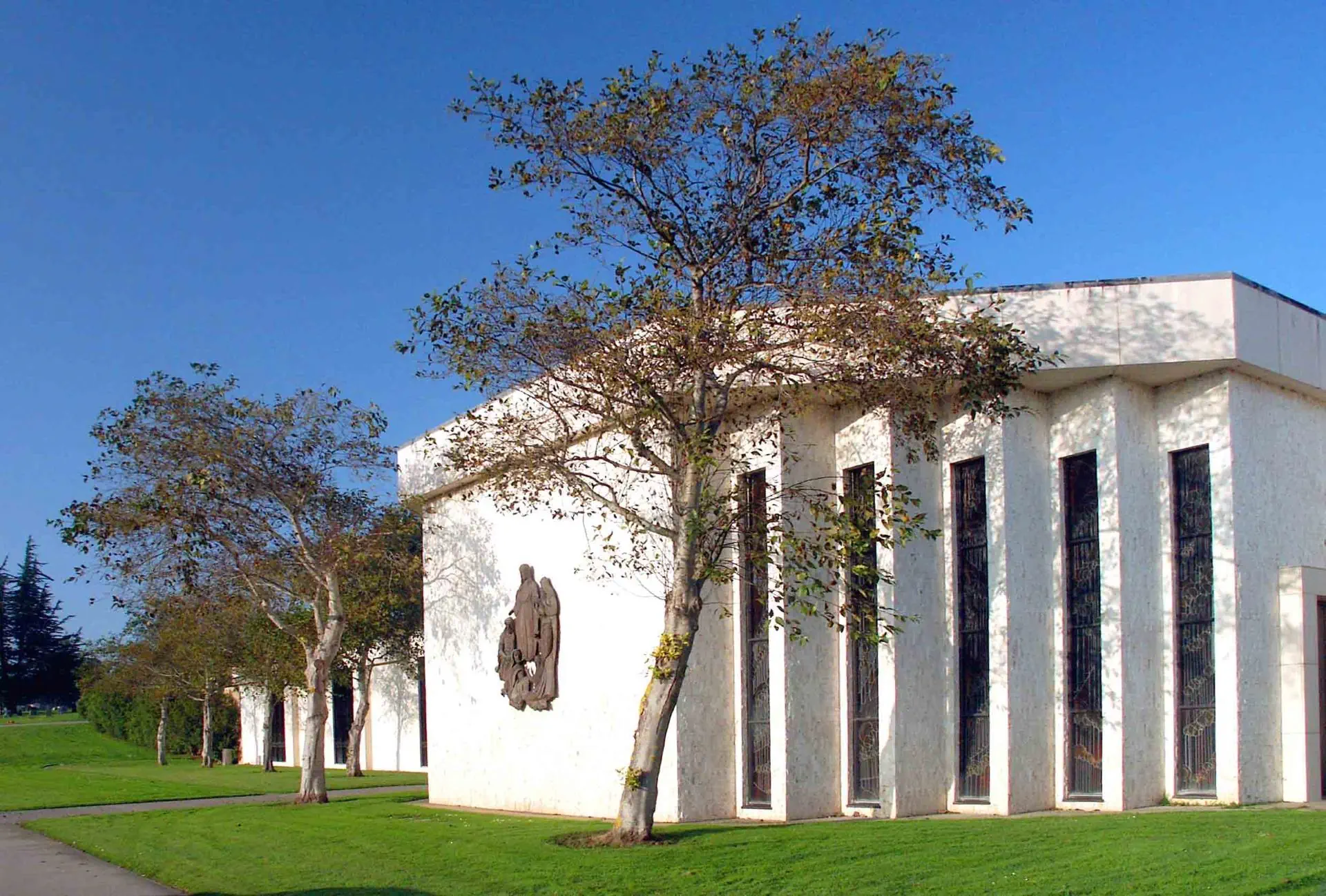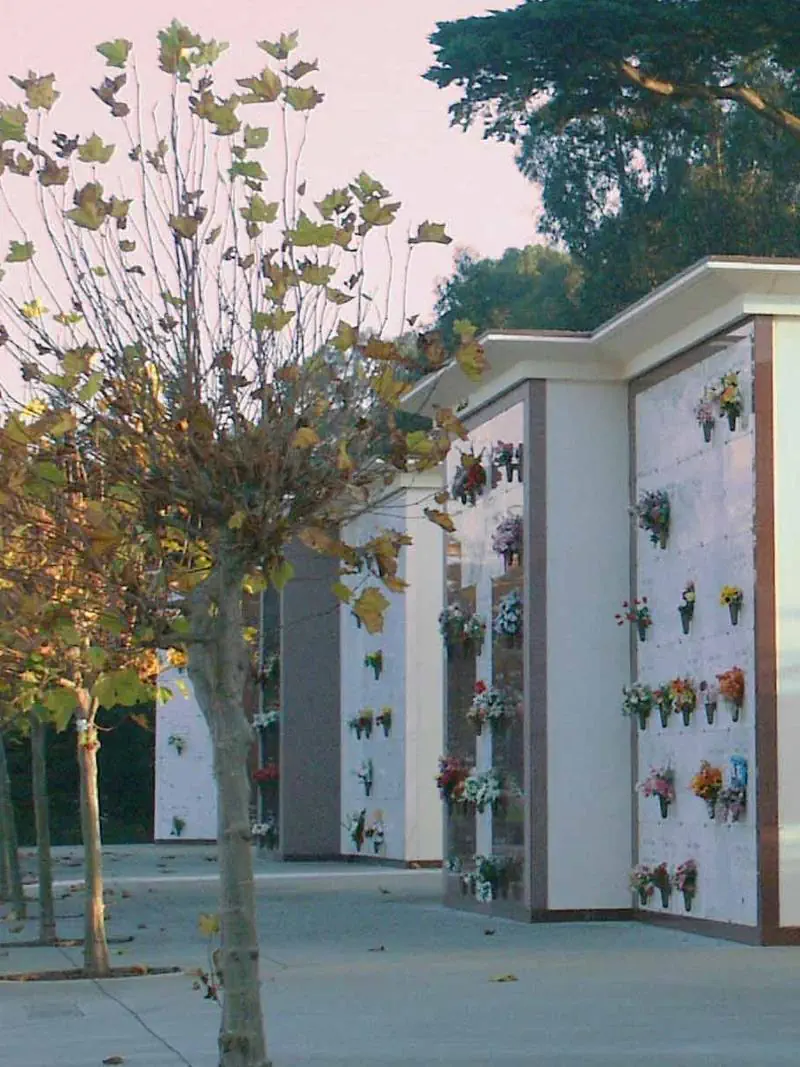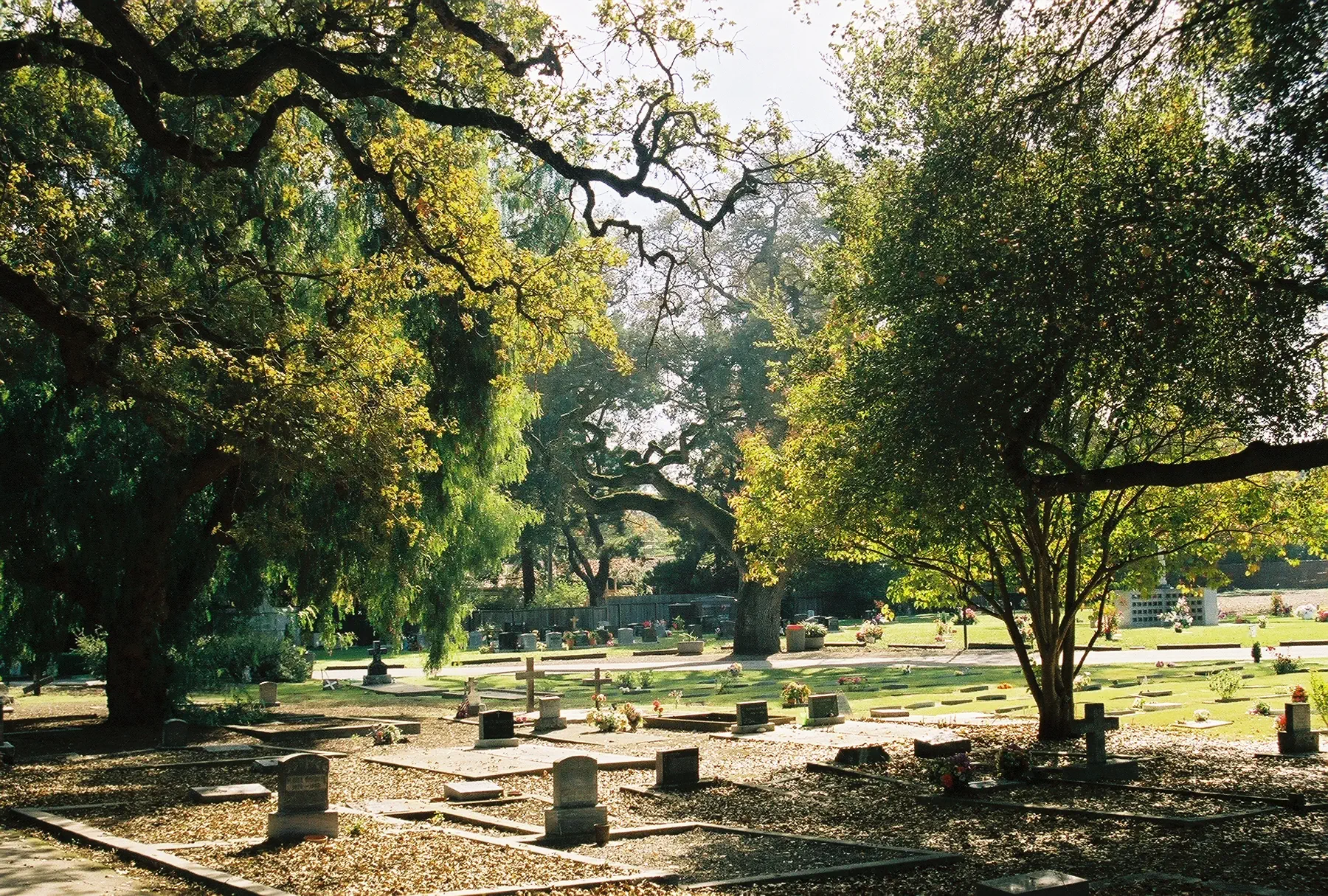If you’re at the cemetery speaking with staff or meeting with one of our Advisors, you may hear some terminology that is unfamiliar to you. We want to make sure you’re as comfortable as possible during your visit, so there are some terms that may be used during your discussions with staff that may be important to know. Of course, we do our best to explain everything, but this may help you be more familiar with words and phrases we use in our conversations.
In-ground burial location for cremated remains (urns).
In-wall location for cremated remains (urns). Can be outdoor or indoor. Can be marble-front or glass front.
In-wall location for caskets. Can be outdoor or indoor. Typically, marble front.
A group of graves or a private crypt/mausoleum purchased to ensure generational family togetherness.
A building constructed to house crypts and niches indoors. A private mausoleum is a smaller version of what is traditionally thought of as a mausoleum. It can typically be held anywhere from 4-12 caskets, sometimes more.
Buildings constructed with outward facing crypts in an outdoor setting.
A structure constructed with outward facing niches for cremated remains in an outdoor or indoor setting.
Durable container for cremated remains. Can be simple or decorative. Made from resin, ceramic, wood, bronze, or other durable materials. Some allow for personalization.
A care fund that ensures the perpetual care and maintenance of the cemetery for generations. When a grave, crypt, niche, or family plot/estate is purchased there is also a one-time contribution to the cemetery’s endowment care included in the contract. Endowment Care contribution amounts vary depending on the type of space that is purchased.
A collection of fees required for a burial. Often includes the Recordation Fee, Interment Fee, and Burial Box.




An administrative fee for paperwork filings and coordinating burials. A part of the “interment charges” group of fees.
The fee for the labor to open and close a location, making the burial/placement of the casket/urn in the process.
A concrete outer container that the casket or urn is placed in for in ground burials.
A protective outer container that the casket or urn is placed in for in ground burials. Wilbert Burial Vaults are the brand used at Holy Cross. The base and cover are lined with a Seamless Protective Inner Liner. They are designed and warranted to protect against the entrance of outside elements.
A stone, typically granite, placed within a frame with vase holes at a grave engraved with the deceased’s information. The size varies depending on the section of the cemetery and marker restrictions. Must have a Christian burial symbol within its design.
A stone, of various colors/designs/shapes that is engraved with the deceased’s information engraved on it. The size varies depending on the section of the cemetery and monument restrictions. Must have a Christian burial symbol within its design.
The fee for installing the monument into the frame or base and then into the earth or on a mow band.
A cement row installed into the earth over a long stretch of the ground for upright monuments/bases to be installed on. This helps protect the upright memorials by alleviating the requirement for trimming between them as well as helps prevent sinking, leaning, or tilting.
The cement/granite bottom of the upright memorial/monument with vase holes. Size is dictated by the size of the monument placed on top.
The marble covering for a crypt or niche where the inscription is placed and oftentimes a cross to affix the vase to.
A photo laser etched onto a ceramic that is affixed to a marker, monument, crypt, or niche.
The space created on a marker, monument, crypt, or niche for the ceramic photo to be placed in when affixing it.
